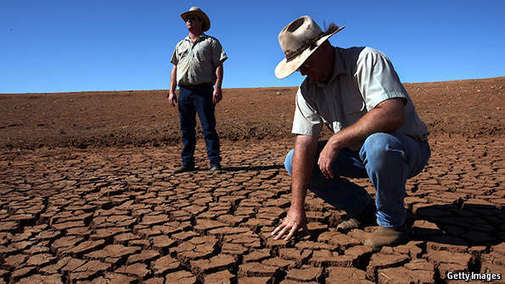Director General of the
National Biotechnology Research and Development Agency
(NBRDA), Prof. Abdullahi Mustache, said on Monday that the threat of famine and drought can best be addresses through the use of biotechnology.\xa0
Speaking at a sensitization workshop on Genetically Modified Organism for members of the House of Representatives Press Corps, Prof Mustapha said the use of biotechnology can also help address issues of climate change that has impacted negatively on food production in the country.
He said the workshop was important to address lots of misconceptions about genetically modified organisms and their impact on food production and human health.
This workshop was organised by the Open Forum on Agricultural Biotechnology (OFAB) in Africa, Nigeria Chapter — an initiative of the African Agricultural Technology Foundation (AATF) — under the auspices of the National Biotechnology Research and Development Agency (NBRDA).
The NBRDA boss said, “This sensitization workshop comes at a critical time when the developing and the underdeveloped countries around the world are grappling with compounded challenges such as food insecurity, climate change, biotic and abiotic stresses and the need for inclusive economic growth.
“Responsibly developed and effectively adopted agricultural biotechnology offers a powerful set of tools to address these interconnected problems.
“Today, biotechnology is more relevant than ever, especially as the government faces the dual threats of drought and impending famine.
“To counter these, it is turning to climate-smart agricultural solutions such as high-yielding, drought-tolerant maize, herbicide tolerant soybeans, bacterial blight-resistant potato, pod borer-resistant (PBR) cowpea and disease and insect-tolerant cotton — innovations that have the potential to significantly improve the livelihoods of smallholder farmers across Nigeria.
“Among the leading innovations in this field in Nigeria are genetically modified organisms (GMOs) and their products. Scientists in Nigeria have harnessed this technology to develop crops like Bt cotton, Bt maize and PBR cowpea, which have since been commercialised.
“These are not just scientific milestones, they are real-world solutions that transform lives, improve food systems and strengthen farmer resilience.
“However, we must also acknowledge the hurdles. In our increasingly connected world, information is a powerful currency. Social media and digital platforms have expanded access to knowledge and created new communities and networks.
“This connectivity has benefited many countries in the Global South, enabling data sharing, learning across borders and more strategic decision-making.
“But it has also come with a downside: the troubling rise of information disorders — namely, misinformation, disinformation and malinformation. These distortions of truth are dangerous because they lead people to make decisions based on inaccurate or false information.
“In the context of GMOs and biotechnology, this has contributed to public skepticism, regulatory uncertainty and slow adoption of technologies that could improve millions of lives.
“That is why this forum is so crucial. It provides a platform for evidence-based dialogue, where diverse voices can come together to ask questions, share insights and build mutual understanding around biotechnology and its place in our agricultural future.
“In a time marked by an overflow of both facts and falsehoods, the role of the media — as truth-bearers and defenders of democracy — has never been more vital. Your work goes beyond reporting. You are charged with scrutinising, analysing and contextualising the issues, especially those as consequential as food security, technology and public health, through the lens of evidence-based reporting.
“As media practitioners, you wield tremendous power; the power to shape public opinion, influence policy and drive societal transformation. Your narratives can spark innovation, build trust in science, foster unity and empower communities. But with this power comes a deep responsibility: the duty to uphold integrity, objectivity and accuracy in everything you publish.
“This workshop seeks to build meaningful partnerships between the media and the scientific community. It urges you to engage researchers, consult credible sources and present scientific developments in ways that are both compelling and easy to understand for the public.”
He said further that the strategic goals of the workshop is “to raise awareness about the dangers of misinformation in science and technology; Create safe spaces for dialogue on contentious issues such as GMOs in food, and the broader challenge of addressing hunger in Nigeria and develop effective counter-narratives that can help reduce misinformation in the Nigerian media landscape, particularly around GMOs and their products.”
Chairman of the House of Representatives Press Corps, Gboyega Onadiran said it was
essential to acknowledge the divergent views on GMO products, adding that “On one hand, proponents of GMOs argue that these organisms can enhance crop yields, improve nutritional content, and foster sustainable agricultural practices.
“On the other hand, critics raise concerns about the potential risks associated with GMOs, including environmental degradation, health implications, and economic threats to local farmers.
“Some argue that GMOs can contaminate local genetic resources, undermine food diversity, and increase hunger.
“Today, we have the opportunity to listen to experts on this very important issue. Our goal is to make informed decisions that prioritize the well-being of Nigerians and the environment. I encourage our members to be attentive and I look forward to a thoughtful and nuanced discussion on this critical issue”.
Provided by SyndiGate Media Inc. (
Syndigate.info
).







